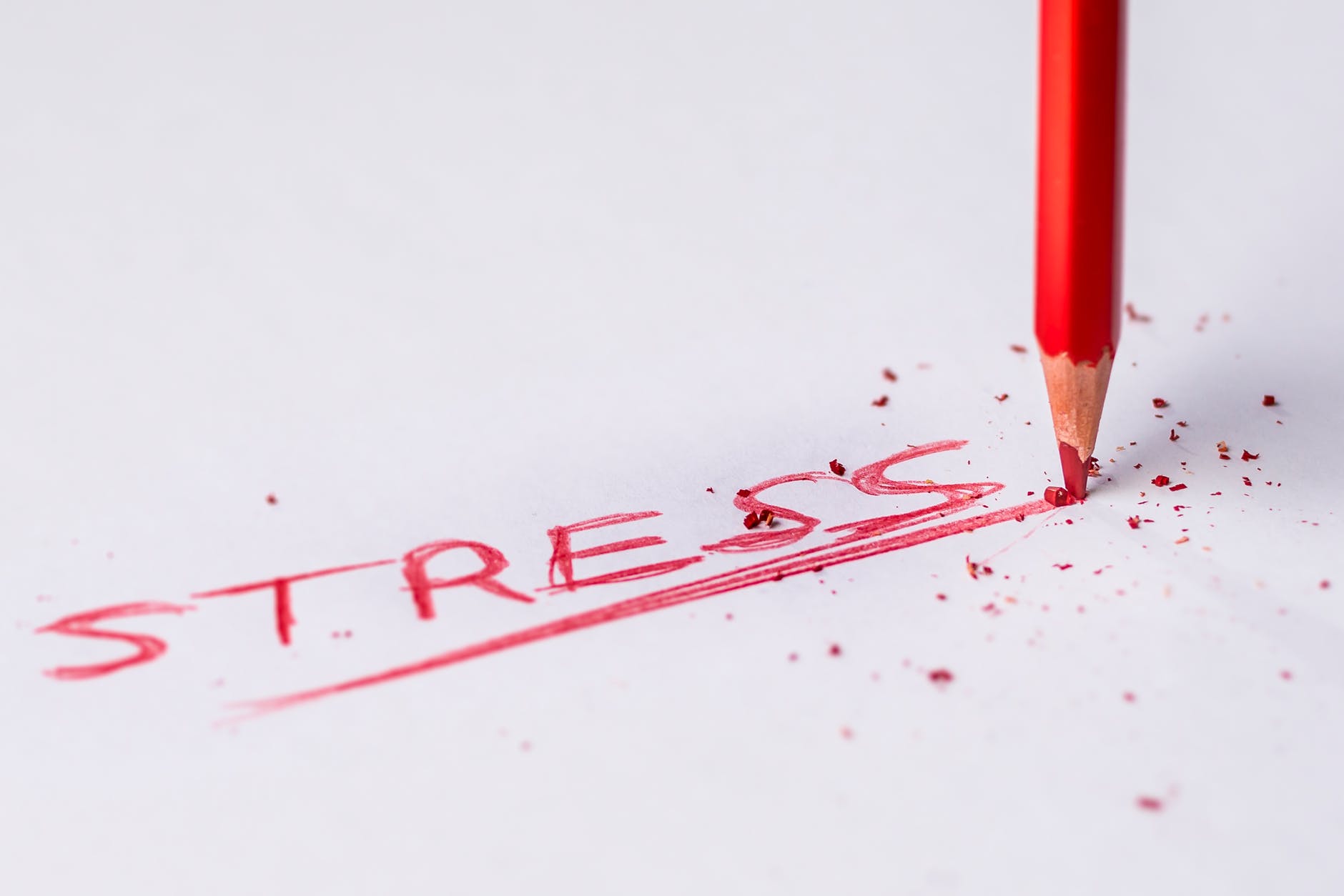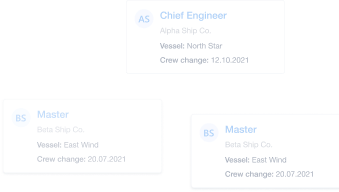When you employ or manage people in the maritime industry you know that you have responsibilities towards their mental health and wellbeing, whether they’re working in a shore-based maritime job, or they’re at sea onboard one of your vessels and working in a seafarer job.
Indeed, no matter what industry you work in, there’s a lot of talk around employee mental health at the moment, but in an often-stressful environment such as shipping, the need to protect your staff and seafarers can be even more urgent.
From high risk, physically demanding roles such as seafarer jobs to work that involves long hours at a desk and little rest from constant phone calls and emails, employees in the maritime industry can be vulnerable to mental health issues that are work-related.
In addition to this, maritime academies worldwide produce tens of thousands of new cadets every year.
Read more: World Day for Safety & Health at Work: Supporting Seafarers
And every year, these fledgling seafarers more or less have the same ambitions: they want to succeed in the maritime industry by climbing the ranks one at a time.
These men and women set sail on ships with reputable shipping companies with their newly acquired skills and training, serve on board for a while, and then strive to advance in rank.

But despite the lucrative job offers, the exciting workplace, and the "globetrotting" lifestyle, many seafarers still leave their ship positions in favor of chances on land.
Why is this the case? Can employers do anything to minimize this problem?
And is this all somehow related to a seafarer’s mental well-being?
Why can seafarer jobs be stressful?
Life at sea is a rewarding career, but like most jobs, there are days when the going gets tough. And yet, the tough get going. But what are these emotional stressors that may affect a seafarer’s mental wellbeing?
1. The nomadic lifestyle
At the beginning of a seafarer’s maritime career, the prospect of traveling the world while working is a powerful pull. But, unfortunately, not every day are they transported from one beautiful country to another.
And then, life happens. A seafarer gets married, has a family, or develops a desire to stay on land and be with their loved ones.

That’s when the nomadic lifestyle no longer suits them. Although some stay (because they need the income to support their family or passion projects), they are not at their happiest.
2. A diminished social life
Almost everyone who boards a ship has grown up in a social setting. Negative consequences like loneliness, and homesickness start to impact those in seafarer jobs when they spend days on end onboard, particularly if there isn't a culture of being social.
3. Being away from their family
While most sailors can accept being absent from their pals for a few months while at sea, being separated from their families for an extended period can be upsetting.
Seafarers can be deeply affected by losing those special moments with their loved ones. Some may have just begun their married lives, while others may have recently become parents. No seafarer wants to miss time with their spouse or miss their children's milestones
When this happens, seamen and women understand the value of "family life" and "loved ones." But unfortunately, one of the biggest reasons seafarers leave their careers at sea is due to the hardship of being away from home for months.
How to look after employee and crew mental wellbeing
Anxiety, stress, depression, burnout - all of these things can affect the people that work for you, whether they’re in an office, on deck, on the bridge, or in the engine room.

Indeed, you might even be feeling the symptoms yourself. But if you’re a shipowner, crew manager or anyone who has people working below you in your organization’s hierarchy, it could be an important part of your role to help form the way your company responds to employee mental health and wellbeing.
Read more: Why Great Communication is Essential for Crew Retention
Easier said than done when you have so many other things to juggle, we know.
From maritime recruitment to crew planning, your day is already busy enough, but in order to increase employee and crew retention and make sure that both office staff and seafarers want to work for your company, how do you start getting to grips with the mental health and wellbeing of your people?
How to prioritize your employees’ mental health
Despite talk about mental health and wellness being a lot more open than it was even five or ten years ago, many people in a workplace environment are still hesitant to open up about any issues they might have.
And this is especially true in a male-dominated industry such as maritime.
But regardless of gender, anyone, whether they’re a recruitment officer or an able seaman, might feel worried about how talking about their mental health will affect how they are viewed in the workplace.

Now that talking about mental health is somewhat normalized, it can be easy to forget that not everyone is comfortable yet about talking about it.
Look at the stats: Priory, the provider of behavioral care, found that 40% of men will not talk about their mental health.
So where does that leave you as an employer or manager who wants to make sure that your employees and crew know that they can talk to you, or to their direct superior?
Tread carefully around the conversation
You need to look after your employees’ and contractors’ mental health but you need to refrain from being too intrusive. So how do you do that?
We’ll look at four different ideas that will help your small to medium-sized shipping company adopt a more proactive approach to making sure your employees and seafarers are happy, mentally well and productive.
1. Provide tips for managing mental wellbeing
It doesn’t matter what size your organization is, or whether you have people ashore or at sea, but semi-regular mental health awareness sessions will help to get people using some tips and tricks to manage their wellbeing, without them having to offer up information about themselves.
After all, you have team meetings and probably the occasional training session - so why not include some stress management techniques in those? Or you could even run short courses giving people some ideas for dealing with work-related issues and other mental health topics.
The UK-based organization The Samaritans offers free resources for learning how to teach stress management. Or you could go one step further and hire a mental health coach to host a session.
This is something that is probably easier to achieve with your office workers more so than your seafarers but it is still important that the higher ranks on your vessels are able to offer the same advice and tips to anyone onboard who needs help.
2. Make sure everyone knows they can speak in confidence
It is crucial that your seafarers and your employees know that they can talk to you at any time and in absolute confidence. Any conversation they have, whether it’s with HR, their manager, their higher ranking officer or their bosun, must be kept private.
And make sure that all superiors know this and abide by it. It only takes one person to let something slip in conversation with a third party for any confidence to be shattered.
And that means it won’t take long for your crew or employees to shut down when it comes to discussing their mental health or asking for help.

3. Know what to look out for and learn how to help
If you’re working in maritime recruitment, crew planning, personnel or even on a vessel, chances are you are not a trained mental health professional.
However you can still learn how to identify when someone in your office or on your ship is having a hard time coping.
Learn some of the signs that someone is having problems as this will make it possible to reach out to individuals if you can see it’s needed. Again, this is something that all managers and supervisors should be taught to do whether they’re working on- or offshore.
4. Make it easier for people to tell you they need help
As we’ve covered, not everyone feels comfortable going to a superior and asking for help with their mental health. They might not be able to put their struggles into words adequately, particularly if there are language barriers also thrown into the mix.
They might be worried about being seen as a failure. Or the vessel might not be the best environment for talking about ‘feelings’.
Read more: 5 Tips for Clearer Communication in the Maritime Industry
Therefore, creating a simple way for crew and staff to communicate how they feel is a solid step in the right direction.

A simple document emailed to staff and seafarers asking them to rate where they fall on a scale of one to ten when it comes to their mental health will make it easier for those that find it difficult to talk about wellbeing to make any issues known.
There are also two different ways of approaching this: anonymous or named surveys. If you’re asking for names, clearly this will help you address an individual’s issues. But you’ll probably find you get a more honest response if the survey is anonymous.
What’s the point of that? Well, it will give you a bigger snapshot of how your office or crew onboard any given vessel is feeling in general. This will allow you to take steps to tackle any areas that clearly need improvement.
5. Invest in things that will make crew happier
Investing in entertainment such as satellite TV, fast and reliable internet connectivity and gaming consoles can help the crew relieve stress.
Nurturing relationships with the people they left at home is also essential. As such, allowing the crew to access their email and talk with their loved ones will significantly help.

It’s also good to encourage everyone onboard to engage in sports or even workouts to instill discipline in both mind and body.
5. Implement employee and crew-friendly policies
As an employer, ensuring your workplace is one that thrives in collaboration and positivity is a must. Implementing policies like anti-bullying or harassment can protect your crew from unnecessary mental distress.
You can also advocate for mental health by ensuring there won’t be any sanctions or difficulties if your employees or contractors decide to pause and attend to their mental health concern.
This way, they can get the help they need and not delay it for fear they’ll get penalized or barred from returning to work.
Why does crew and employee mental wellbeing matter?
Like maintaining physical fitness keeps bodies strong, staying mentally fit enables those working in seafarer jobs to achieve and maintain good mental health.
When seafarers are mentally fine, they appreciate their lives, their surroundings, and the colleagues that they work with which in turn helps to ensure a smooth and safe voyage.
They can also innovate, learn, explore, and take chances. As a result, they are better equipped to handle challenging situations in their personal and professional lives and move up the maritime career ladder.

Mental health training for the maritime industry
The mental welfare of seafarers can be significantly impacted by practical training in mental health awareness for seafarers and shore-based maritime professionals working with those working at sea.
This training can also ensure they are well-prepared for some of the abovementioned issues.
Reducing stigma through education on mental health would also help significantly. Seafarers will feel more comfortable seeking assistance or discussing their issues with supervisors or colleagues if mental health is no longer stigmatized.
Additionally, training can help give sailors the knowledge and courage to approach a fellow crew member who they may suspect of having difficulties.
And, after all, you want your company to be known as somewhere that looks after its employees. After all, this is the best way to make a good name for yourself in the shipping industry. And that means you’ll attract better applicants for both your shore-based maritime jobs, and for your crews.
And when your people know that their employer cares about their wellbeing, this will lead to higher employee and crew retention.
Poor mental health at work can have a poor knock-on effect on productivity and focus - and that’s when mistakes get made. And that is definitely something you don’t want - especially on a vessel.

But what it really comes down to is that everyone deserves to be respected and valued in their place of work and making sure that your seafarers’ and employees’ mental wellbeing isn’t being negatively affected by their job or working conditions is just the right thing to do.
This blog post was originally published on September 6th 2022 and updated on September 18th 2023

Eve Church
Eve is Martide's content writer, publishing regular posts on everything from our maritime recruitment and crew planning software to life at sea. Eve has been writing professionally for more than two decades, crafting everything from SEO-focused blog posts and website landing pages to magazine articles and corporate whitepapers.
UK




